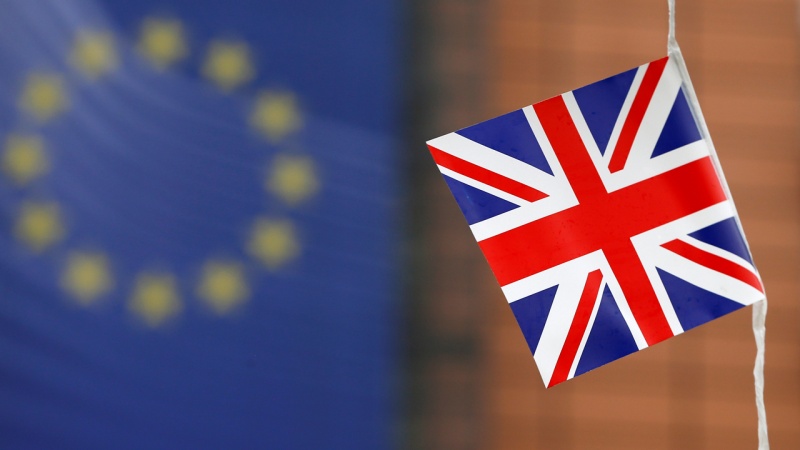The British vote by a narrow majority to leave the European Union is not the end of the world — but it does show us how we can get there.
A major European power, a longtime defender of liberal democracy, pluralism and free markets, falls under the sway of a few cynical politicians who see a chance to exploit public fears of immigration to advance their careers. They create a stark binary choice on an incredibly complex issue, of which few people understand the full scope — stay in or quit the EU.
These politicians assume that the dog will never catch the car and they will have the best of all worlds — opposing something unpopular but not having to deal with the implications of the public actually voting to get rid of it. But they so dumb down the debate with lies, fear-mongering and misdirection, and with only a simple majority required to win, that the leave-the-EU crowd carries the day by a small margin. Presto: the dog catches the car. And, of course, it has no idea now what to do with this car. There is no plan. There is just barking.
Like I said, not the end of the world yet, but if a few more E.U. countries try this trick we’ll have quite a little mess on our hands. Attention Donald Trump voters: this is what happens to a country that falls for hucksters who think that life can just imitate Twitter — that there are simple answers to hard questions — and that small men can rearrange big complex systems by just erecting a wall and everything will be peachy.
But I digress.
Because although withdrawing from the EU is not the right answer for Britain, the fact that this argument won, albeit with lies, tells you that people are feeling deeply anxious about something. It’s the story of our time: the pace of change in technology, globalization and climate have started to outrun the ability of our political systems to build the social, educational, community, workplace and political innovations needed for some citizens to keep up.
We have globalized trade and manufacturing, and we have introduced robots and artificial intelligence systems, far faster than we have designed the social safety nets, trade surge protectors and educational advancement options that would allow people caught in this transition to have the time, space and tools to thrive. It’s left a lot of people dizzy and dislocated.
At the same time, we have opened borders deliberately — or experienced the influx of illegal migration from failing states at an unprecedented scale — and this too has left some people feeling culturally unanchored, that they are losing their “home” in the deepest sense of that word. The physical reality of immigration, particularly in Europe, has run ahead of not only the host countries’ ability to integrate people but also of the immigrants’ ability to integrate themselves — and both are necessary for social stability.
And these rapid changes are taking place when our politics has never been more gridlocked and unable to respond with just common sense — like governments borrowing money at near zero interest to invest in much-needed infrastructure that creates jobs and enables us to better exploit these technologies.
“Political power in the West has been failing its own test of legitimacy and accountability since 2008 — and in its desperation has chosen to erode it further by unforgivably abdicating responsibility through the use of a referendum on the EU,” said Nader Mousavizadeh, who co-leads the London-based global consulting firm Macro Advisory Partners.
But we need to understand that “the issue before us is ‘integration’ not ‘immigration,’” Mousavizadeh added. The lived experience in most cities in Europe today, is the fact that “a pluralistic, multiethnic society has grown up here, actually rather peacefully, and it has brought enormous benefits and prosperity. We need to change the focus of the problem — and the solution — from the physical reality of immigration to the political and economic challenge of integration.” Schools, hospitals and public institutions generally will not rise to the challenge of the 21st century “if social integration is failing.”
Indeed, in my view, the countries that nurture pluralism the best will be the ones that thrive the most in the 21st century. They will have the most political stability, attract the most talent and be able to collaborate with the most people. But it’s hard work.
Yet in an age when technology is integrating us more tightly together and delivering tremendous flows of innovation, knowledge, connectivity and commerce, the future belongs to those who build webs not walls, who can integrate not separate, to get the most out of these flows. Britain leaving the EU is a lose-lose proposition. I hope the “Regrexit” campaign can reverse Brexit and that Americans will dump Trump.
Never forget, after the destruction of World War II, the E.U. project “emerged as a force for peace, prosperity, democracy and freedom in the world,” noted Eric Beinhocker, the executive director of the Institute for New Economic Thinking at Oxford. “This is one of humankind’s great achievements. Rather than let it be destroyed we must use the shock of the Brexit vote to reimagine, reform, and rebuild a new Europe.”
The New York Times
